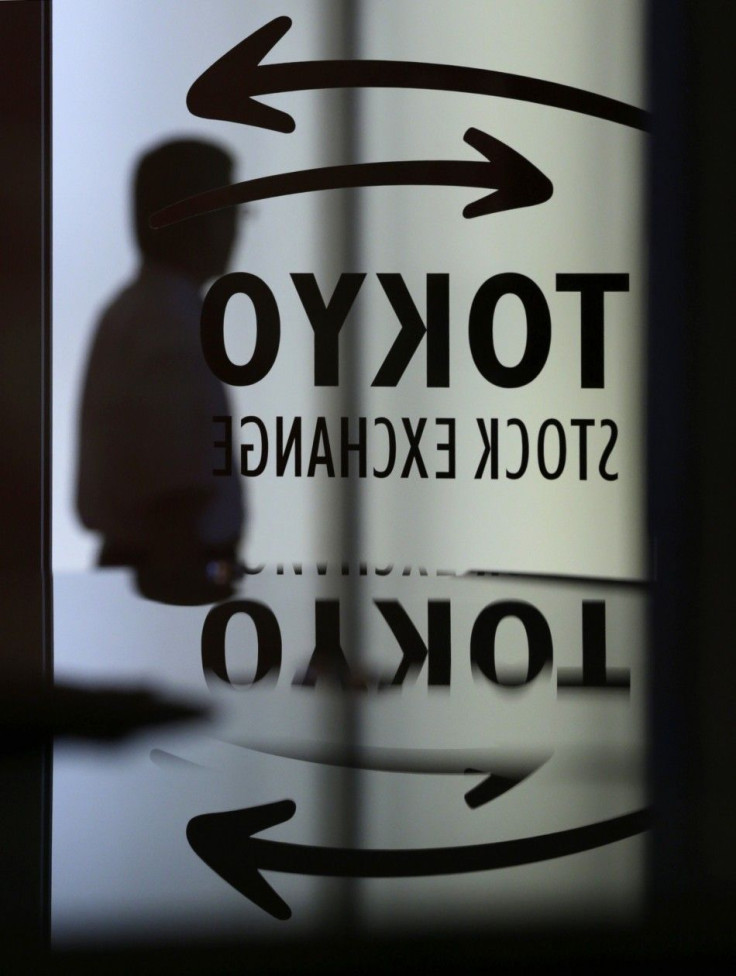Asian Stock Markets Appear Stressed On Monday As Nikkei Plunges 3.2%; Yen Posts Early Gains Against US Dollar

In a placid day for most other Asian markets, the Japanese Nikkei proved volatile yet again and extended last week's losses to end Monday down 3.2 percent.
Japan’s benchmark Nikkei 225 plunged 3.22 percent or 469.80 points to 14,142.65 as a stronger yen weighed on shares of export companies. In contrast, the Shanghai Composite gained 0.20 percent and the South Korean KOSPI advanced 0.33 percent. India’s BSE Sensex rose 0.89 percent and Hong Kong’s Hang Seng rose 0.43 percent.
On Thursday, uncertainties over the pace of global economic growth following weak economic data from China and the U.S. Federal Reserve's ambivalence about its future monetary policy pulled down financial stocks across the globe. On that day, the Nikkei recorded its biggest daily drop in two years -- falling 7.3 percent on a day of extreme volatility. But despite its recent falls, the Nikkei is still above where it began the year.
“While the market reaction looked a tad overdone it is notable that the dichotomy between growth and equity market performance has widened over recent weeks and was prone to a correction,” a note from Credit Agricole said.
Federal Reserve Chairman Ben Bernanke, in his testimony to Congress last week, said the central bank could scale down its asset purchase program in the next “few meetings,” and any change would be made after considering the inflation and unemployment data for the coming month. However, the FOMC minutes for the May 1 meeting, released later on the same day, showed that more members favored the tapering of bond buying program as early as June.
Disappointing economic data from China, which pointed to contracting factory activity for the first time in seven months, raised concerns over the strength of economic recovery in the world’s second-largest economy and weighed on investor sentiment. Manufacturing PMIs released last week suggest that global economic growth is moving into a soft patch. Meanwhile, factory activity in the U.S. grew at its slowest pace since October.
"The underlying momentum in the global economy is weaker than it should be at this point of the economic cycle, five years after the global crisis," Lena Komileva, director of G+ Economics consultancy in London, told Reuters.
"We have yet to see evidence of a convincing, self-sustained positive feedback loop between real growth and market value inflation," she said.
On the other hand, data released Monday by the National Bureau of Statistics of China showed that profits of industrial companies rose 9.3 percent in April in comparison to the same period in the previous year, following an increase of 5.3 percent in March.
© Copyright IBTimes 2024. All rights reserved.











